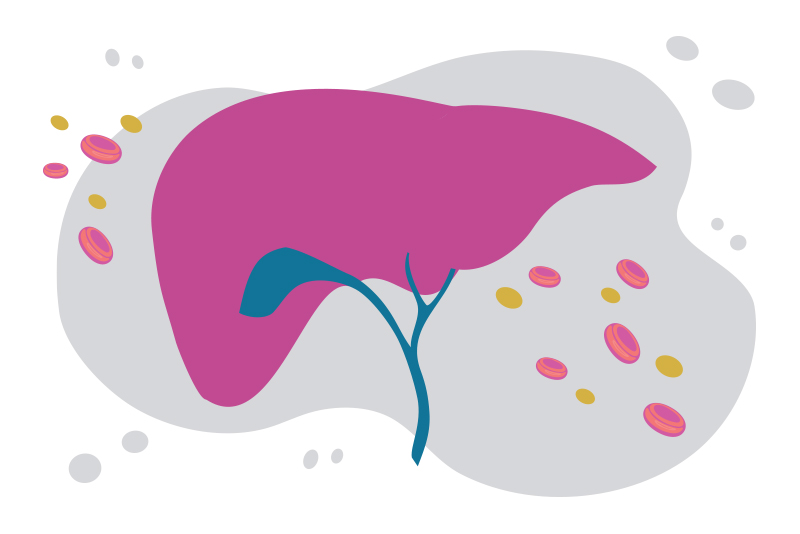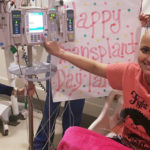One day on the field, admitted to the ICU the next: Rob’s liver transplant journey

When you’re a teen, it’s not very common to worry about what’s going on inside your body — especially not about potential organ failure. For Rob, now 14 years old, that happened in the blink of an eye. One day, he was scoring goals in soccer and hanging out with his friends. But in just a matter of hours, he was in acute liver failure.
“Rob woke up feeling not himself,” remembers Rachel, Rob’s mom. “He had diarrhea, was lethargic, and was getting worse by the hour. By the afternoon, his eyes were turning yellow, and that’s when I knew we had to go to Boston Children’s Hospital.”
The importance of acting fast during organ failure
Thankfully, Rob and Rachel lived close to Boston Children’s and were familiar with the hospital. Upon arriving, Rob had turned completely yellow and was taken almost immediately to the intensive care unit (ICU). By the following morning, Rachel and her husband learned that Rob was in acute liver failure and in dire need of a liver transplant — and they still had no idea what had caused it.
“This was all so new to us. We were in a state of shock,” shares Rachel. “Especially when just hours before, Rob was showing zero signs of feeling sick.”
Fortunately, the experienced and specially trained doctors from the Center for Childhood Liver Disease knew exactly what was going on. They quickly diagnosed Rob with Wilson disease, a rare inherited condition in which the liver can’t excrete copper, creating a buildup of this mineral and progressive damage to the liver and potentially other organs. Eventually, copper is released into the bloodstream and forms deposits in other organs, including the brain, kidneys, and eyes. Many people with this disease don’t realize they have it, and the condition can be mild for many years before causing organ damage. Only 3 to 5 percent of patients with Wilson disease present with acute liver failure. That’s why for Rob, things took a turn for the worse so quickly — there were no signs before his liver failure that he had the disease.
Doctors informed the family that liver transplant was the only cure after trying to initially medically stabilize him. A team of doctors from the Center for Childhood Liver Disease and the Liver Transplant program was able to quickly place him on the national registry to receive a donated liver. He was placed at the highest waitlist status for a liver transplant given his clinical condition.
As part of the transplant evaluation, Rachel met with Dr. Heung Bae Kim from the Pediatric Transplant Center to discuss Rob’s diagnosis and that he would be listed on the national registry to receive an organ donation.
“I can’t commend the Pediatric Transplant Center and the Center for Childhood Liver Disease teams enough for the amazing work they did for our family,” shares Rachel. “Everyone — from the administrative staff to the surgeons — was incredibly supportive during the most terrifying week of our lives.”
A life-saving transplant
Because of the prompt diagnosis of his Wilson disease — and action by the liver teams to place him on the national registry — Rob was in the hospital for just four days before he received a life-saving liver transplant.
On Mother’s Day 2021, Dr. Kim greeted Rachel in the early hours of the morning to say that he was able to find a liver match for her son. “I can’t say thank you enough,” shares Rachel. “The team always had a backup plan that included looking for a living donor match, as well as continuing with aggressive medical care to remove the excess copper from his blood if a liver match didn’t happen within a few days. They were doing everything in their power to help Rob.”
Back to scoring goals
After the successful liver transplant, Rob was on the road to recovery — until he hit a speed bump. During a routine check-up, his liver blood tests were abnormal, suggesting early liver rejection. This was enough for Rob’s transplant team, led by hepatologist, Dr. Scott Elisofon, to admit Rob for treatment immediately. “We were so lucky Dr. Elisofon and the team chose to admit Rob early because that meant he could be treated sooner and get back to recovering at home.” Within a few months, Rob was seeing his friends and playing soccer, with some limitations to protect his compromised immune system.
Two years later, Rob has to keep up with his medications, drink lots of fluids, and keep his liver and other organs healthy — something he never even thought about prior to his transplant. Today, he’s back to where he started on the soccer field, and now hits the basketball courts too. However, this time, he has a new appreciation for what his body, and his Boston Children’s team, can do to keep him healthy.
Learn more about the Center for Childhood Liver Disease.
Related Posts :
-

Running the Boston Marathon with a purpose: Ben's liver transplant journey
Ben is no stranger to sports — in fact he’s probably the most excited when he’s able to get ...
-

From Virginia to Boston for a kidney transplant: Joshy’s story
Joshy Buchheit is a lot like most 4-year-old boys. He loves playing in the mud, riding his scooter, and keeping ...
-

Surviving stem cell transplant: New hope when the donor isn’t a full match
To see Tara Daniels today, with a corporate job in marketing and about to close on a house, you’d ...
-

Looking for clues to improve the life of a transplanted organ
The Transplant Research Program (TxRP) at Boston Children’s Hospital is the only pediatric transplantation research program in the U....





